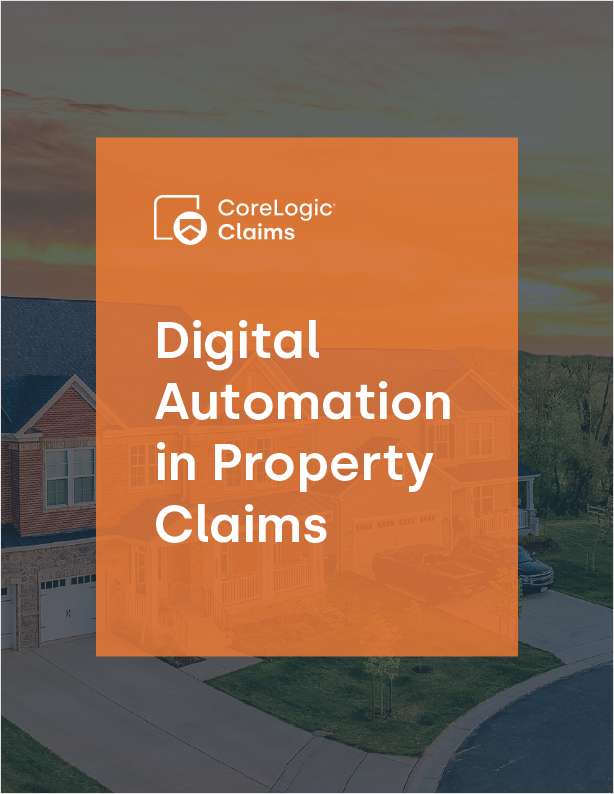When Punitives Don't Punish
In the largest verdict for bad faith in U.S. history, the jury found that Aetna "recklessly disregarded its duty to deal fairly and act in good faith" and awarded punitive damages. But will Aetna get the message?
September 13, 2019 at 01:07 PM
3 minute read
 Companies are punished with monetary damages, but who's out the dollars?
Companies are punished with monetary damages, but who's out the dollars?
In November 2018, an Oklahoma jury returned a $25.5 million verdict against Aetna for improperly denying coverage for proton beam therapy, a treatment the company considered experimental. Evidence adduced at trial showed that no one in the oncology community considered that treatment experimental for the treatment of cancer and that the treatment, in fact, would have been covered by Medicare, had the plaintiff been aged 65 or over. It might even have been covered by Aetna if the plaintiff had been younger than 21, but she was not in this case.
In the largest verdict for bad faith in U.S. history, the jury found that Aetna "recklessly disregarded its duty to deal fairly and act in good faith" and awarded punitive damages. During the course of deliberations, the jury specifically discussed "sending a message" to Aetna and "making a statement" so Aetna would reevaluate how it handles appeals and requests for coverage.
But will Aetna get the message? The answer to that question may turn on something completely unrelated to the case or the jury's intent: whether punitive damages are insurable by law. If so, Aetna will not be the one paying the punitives; its insurer will.
Whether punitive damages are insurable by law varies from state to state. Approximately 23 states generally permit punitives to be insured. Three states appear to prohibit insurability. The remaining states vary and often depend on whether the punitive damages were directly or vicariously assessed against a tortfeasor. Approximately 20 states appear to prohibit the insurability of directly assessed punitives as being against public policy, since such coverage would tend to frustrate the purpose of a punitive damage award in punishing a defendant for his own egregious conduct. Connecticut is one of those states; Tedesco v. Maryland Casualty, 127 Conn. 533 (1941); although punitives here are limited to an award of attorney fees in any event.
In states where punitives are not insurable, corporations with facilities, employees or legal activity in-state are increasingly turning to products sold by non-admitted and offshore insurers that specifically provide coverage for punitive damages and are beyond the reach of state regulators. Such policies might include language that expressly covers punitive damage awards plus choice of law clauses to interpret policies under law from jurisdictions that do permit insurability of punitives. Other policies from offshore markets might provide separate, standalone coverage of punitives that are only triggered in the event of a final judgment in a jurisdiction that prohibits insurability of punitives. Such policies insulate the corporation from the consequences of its bad conduct, making an award of punitive damages likely to punish only the insurer that sold the policy.
So what can a jury seeking to send a message and force a company to change its conduct do? If it's relying on punitives alone, not much. But perhaps jurors might start to proscribe the conduct at issue to effect the change they seek. Or perhaps insurance regulators or the courts might look at whether the relevant choice of law clauses themselves might be unenforceable as against public policy. Either way, it seems clear that punitive damages aren't what they were supposed to be.
This content has been archived. It is available through our partners, LexisNexis® and Bloomberg Law.
To view this content, please continue to their sites.
Not a Lexis Subscriber?
Subscribe Now
Not a Bloomberg Law Subscriber?
Subscribe Now
NOT FOR REPRINT
© 2025 ALM Global, LLC, All Rights Reserved. Request academic re-use from www.copyright.com. All other uses, submit a request to [email protected]. For more information visit Asset & Logo Licensing.
You Might Like
View All
ADVANCE Act Offers Conn. Opportunity to Enhance Carbon-Free Energy and Improve Reliability With Advanced Nuclear Technologies

Trending Stories
Who Got The Work
J. Brugh Lower of Gibbons has entered an appearance for industrial equipment supplier Devco Corporation in a pending trademark infringement lawsuit. The suit, accusing the defendant of selling knock-off Graco products, was filed Dec. 18 in New Jersey District Court by Rivkin Radler on behalf of Graco Inc. and Graco Minnesota. The case, assigned to U.S. District Judge Zahid N. Quraishi, is 3:24-cv-11294, Graco Inc. et al v. Devco Corporation.
Who Got The Work
Rebecca Maller-Stein and Kent A. Yalowitz of Arnold & Porter Kaye Scholer have entered their appearances for Hanaco Venture Capital and its executives, Lior Prosor and David Frankel, in a pending securities lawsuit. The action, filed on Dec. 24 in New York Southern District Court by Zell, Aron & Co. on behalf of Goldeneye Advisors, accuses the defendants of negligently and fraudulently managing the plaintiff's $1 million investment. The case, assigned to U.S. District Judge Vernon S. Broderick, is 1:24-cv-09918, Goldeneye Advisors, LLC v. Hanaco Venture Capital, Ltd. et al.
Who Got The Work
Attorneys from A&O Shearman has stepped in as defense counsel for Toronto-Dominion Bank and other defendants in a pending securities class action. The suit, filed Dec. 11 in New York Southern District Court by Bleichmar Fonti & Auld, accuses the defendants of concealing the bank's 'pervasive' deficiencies in regards to its compliance with the Bank Secrecy Act and the quality of its anti-money laundering controls. The case, assigned to U.S. District Judge Arun Subramanian, is 1:24-cv-09445, Gonzalez v. The Toronto-Dominion Bank et al.
Who Got The Work
Crown Castle International, a Pennsylvania company providing shared communications infrastructure, has turned to Luke D. Wolf of Gordon Rees Scully Mansukhani to fend off a pending breach-of-contract lawsuit. The court action, filed Nov. 25 in Michigan Eastern District Court by Hooper Hathaway PC on behalf of The Town Residences LLC, accuses Crown Castle of failing to transfer approximately $30,000 in utility payments from T-Mobile in breach of a roof-top lease and assignment agreement. The case, assigned to U.S. District Judge Susan K. Declercq, is 2:24-cv-13131, The Town Residences LLC v. T-Mobile US, Inc. et al.
Who Got The Work
Wilfred P. Coronato and Daniel M. Schwartz of McCarter & English have stepped in as defense counsel to Electrolux Home Products Inc. in a pending product liability lawsuit. The court action, filed Nov. 26 in New York Eastern District Court by Poulos Lopiccolo PC and Nagel Rice LLP on behalf of David Stern, alleges that the defendant's refrigerators’ drawers and shelving repeatedly break and fall apart within months after purchase. The case, assigned to U.S. District Judge Joan M. Azrack, is 2:24-cv-08204, Stern v. Electrolux Home Products, Inc.
Featured Firms
Law Offices of Gary Martin Hays & Associates, P.C.
(470) 294-1674
Law Offices of Mark E. Salomone
(857) 444-6468
Smith & Hassler
(713) 739-1250












